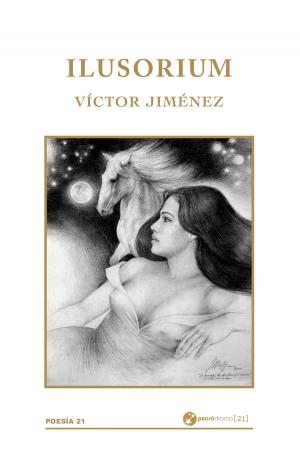| Author: | Perly Bysshe Shelley | ISBN: | 9788892593893 |
| Publisher: | Perly Bysshe Shelley | Publication: | April 11, 2016 |
| Imprint: | Language: | English |
| Author: | Perly Bysshe Shelley |
| ISBN: | 9788892593893 |
| Publisher: | Perly Bysshe Shelley |
| Publication: | April 11, 2016 |
| Imprint: | |
| Language: | English |
Queen Mab; A Philosophical Poem; With Notes, published in 1813 in nine cantos with seventeen notes, was the first large poetic work written by Percy Bysshe Shelley (1792–1822), the English Romantic poet.[2] After substantial reworking, a revised edition of a portion of the text was published in 1816 under the title The Daemon of the World. This poem was written early in Shelley's career and serves as a foundation to his theory of revolution. It was his first major poem. In this work, he depicts a two-pronged revolt involving necessary changes, brought on by both nature and the virtuousness of humans.
Shelley took William Godwin's idea of "necessity" and combined it with his own idea of ever-changing nature, to establish the theory that contemporary societal evils would dissolve naturally in time. This was to be coupled with the creation of a virtuous mentality in people who could envision the ideal goal of a perfect society. The ideal was to be reached incrementally, because Shelley (as a result of Napoleon's actions in the French Revolution), believed that the perfect society could not be obtained immediately through violent revolution. Instead it was to be achieved through nature's evolution and ever-greater numbers of people becoming virtuous and imagining a better society.
He set the press and ran 250 copies of this radical and revolutionary tract. Queen Mab was infused with scientific language and naturalising moral prescriptions for an oppressed humanity in an industrialising world. He intended the poem to be private and distributed it among his close friends and acquaintances. About 70 sets of the signatures were bound and distributed personally by Shelley, and the rest were stored at William Clark's bookshop in London. A year before his death, in 1821, one of the shopkeepers caught sight of the remaining signatures. The shopkeeper bound the remaining signatures, printed an expurgated edition, and distributed the pirated editions through the black market. The copies were–in the words of Richard Carlisle– "pounced upon," by the Society for the Prevention of Vice. Shelley was dismayed upon discovering the piracy of what he considered to be not just a juvenile production but a work that could potentially "injure rather than serve the cause of freedom." He sought an injunction against the shopkeeper, but since the poem was considered illegal, he was not entitled to the copyright. William Clark was imprisoned for 4 months for publishing and distributing Queen Mab.
Queen Mab; A Philosophical Poem; With Notes, published in 1813 in nine cantos with seventeen notes, was the first large poetic work written by Percy Bysshe Shelley (1792–1822), the English Romantic poet.[2] After substantial reworking, a revised edition of a portion of the text was published in 1816 under the title The Daemon of the World. This poem was written early in Shelley's career and serves as a foundation to his theory of revolution. It was his first major poem. In this work, he depicts a two-pronged revolt involving necessary changes, brought on by both nature and the virtuousness of humans.
Shelley took William Godwin's idea of "necessity" and combined it with his own idea of ever-changing nature, to establish the theory that contemporary societal evils would dissolve naturally in time. This was to be coupled with the creation of a virtuous mentality in people who could envision the ideal goal of a perfect society. The ideal was to be reached incrementally, because Shelley (as a result of Napoleon's actions in the French Revolution), believed that the perfect society could not be obtained immediately through violent revolution. Instead it was to be achieved through nature's evolution and ever-greater numbers of people becoming virtuous and imagining a better society.
He set the press and ran 250 copies of this radical and revolutionary tract. Queen Mab was infused with scientific language and naturalising moral prescriptions for an oppressed humanity in an industrialising world. He intended the poem to be private and distributed it among his close friends and acquaintances. About 70 sets of the signatures were bound and distributed personally by Shelley, and the rest were stored at William Clark's bookshop in London. A year before his death, in 1821, one of the shopkeepers caught sight of the remaining signatures. The shopkeeper bound the remaining signatures, printed an expurgated edition, and distributed the pirated editions through the black market. The copies were–in the words of Richard Carlisle– "pounced upon," by the Society for the Prevention of Vice. Shelley was dismayed upon discovering the piracy of what he considered to be not just a juvenile production but a work that could potentially "injure rather than serve the cause of freedom." He sought an injunction against the shopkeeper, but since the poem was considered illegal, he was not entitled to the copyright. William Clark was imprisoned for 4 months for publishing and distributing Queen Mab.















